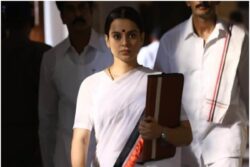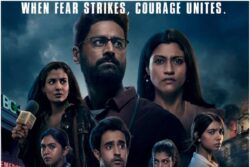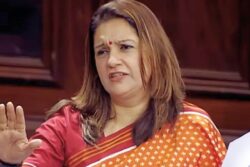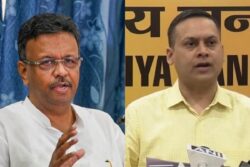Movie review: Chittagong
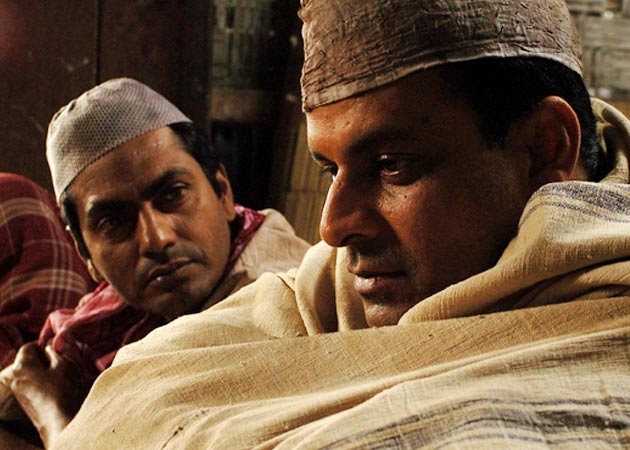
A little-known but hugely significant chapter of the Indian freedom struggle constitutes the narrative kernel of Chittagong, scientist-turned-filmmaker Bedabrata Pain’s directorial debut. As far as period sagas go, this is anything but average fare.
This simple, sure-handed and easy-flowing film strikes no false notes, nor does it fall prey to any creative ambiguity. The director knows exactly what he wants to mine from the pages of history and he extracts just the right degree of dramatic energy from the tale of intense conflict that lies at the heart of the film.
Pain’s approach to the rousing saga of a band of gutsy men and boys who had the British rulers on the run, if only briefly, in Chittagong in the early 1930s – the selfsame story that Ashutosh Gowariker brought to the screen in Khelein Hum Jee Jaan Sey far less effectively – is refreshingly realistic and clear-headed.
Chittagong is inspired by the work and political philosophy of school teacher and freedom fighter Surya Sen (Manoj Bajpayee), who was sent to the gallows in 1934 for his role in the Chittagong armoury raid and other attacks on British interests.
The momentous events leading to the armoury attack on April 18, 1930, and culminating in the Tebhaga peasant uprising in the mid 1940s are seen through the eyes of a young rebel, Jhunku (Delzad Hiwale), who emerged on the post-Independence political stage as Communist Party ideologue and central committee member Subodh Roy.
He was a well-connected barrister’s son but turned his back on the comfortable life that a UK law degree would have guaranteed and joined the militant revolutionaries in their armed struggle against the British rulers.
As portrayed in the film, the 14-year-old boy is constantly assailed by self doubt as the rebels prepare to mount an unprecedented attack on the British garrison in Chittagong and wrest the town from the colonisers.
The district magistrate, Wilkinson (Barry John) is fond of Jhunku and repeatedly dangles the carrot of a foreign education before him.
Jhunku goes through a gamut of emotions after he plunges into the freedom struggle. He and tens of other schoolboys are trained for battle by Masterda, as Surya Sen is called by his followers, and his principal lieutenants – Nirmal Sen (Nawazuddin Siddiqui), Ambika Chakrabarti (Dibyendu Bhattacharya), Ananta Singh (Jaideep Ahlawat), Lokenath Bal (Raj Kumar Yadav) and Ganesh Ghosh (Vishal Vijay).
Pain, who has co-written the film with Shonali Bose, invests Chittagong with a soft, lyrical air, reinforced by the lilt of a soulful theme song rendered by Shankar Mahadevan.
The genteel treatment of the hard-edged material accentuates not just the explosive nature of the film’s action but also the sheer magnitude of the courage demonstrated by its motley group of teenage protagonists.
The director does not resort to overt melodrama or visceral vigour to drive home the point. He instead banks upon the consistent authenticity of the emotions in order to achieve stirring results.
Chittagong is, on one level, a heartfelt tribute to the indomitable spirit of Masterda’s boys and girls – the latter group is represented principally by Pritilata Waddedar (Vega Tamotia), the Indian freedom struggle’s first female martyr of the 20th century.
The stoic Pritilata, for whom Nirmal Sen has a soft spot, provides the film a sub-plot of unrequited love as well as a theme that hinges on the question of gender in the composition of Surya Sen’s poorly armed but determined battalion of rebels.
Equally importantly, the film also illustrates what people’s power can achieve if the will to attempt the seemingly impossible is strong enough and the leadership to harness its potential has the requisite tenacity and vision. The resonance that home truth has for our troubled times cannot be overstated.
Chittagong certainly isn’t a drab and dreary history lesson. It manages to be a gripping human drama without being either a sweeping Hollywood-style adventure or a Bollywood-inflected patriotic saga cranked up to a defeaning pitch for easy consumption.
Thanks to its restrained tenor, the sustained subtlety of its storytelling devices and its elegiac undertone, Chittagong should rank among the more distinctive feature films made on India’s war of independence.
What makes Chittagong particularly special is the way it depicts heroism not as muscle-flexing, chest-thumping, rhetoric-driven bravado (as in standard ‘war’ films) but simply as audacious acts of defiance by ordinary people in the face of grave risk and the prospect of inevitable failure.
The power of the tale is enhanced significantly by the acting. Manoj Bajpayee is top-notch as Surya Sen, and so is Nawazuddin Siddiqui in the role of Nirmal Sen.
Delzad Hiwale captures the doubts, fears, guilt and anger of the teenage protagonist with an endearing, wide-eyed freshness. Vega Tamotia makes a deep impression.
Among the key members of the supporting cast, Dibyendu Bhattacharya, Jaideep Ahlawat, Raj Kumar Yadav and Barry John make every minute they have on the screen count.
An absolute must watch.



